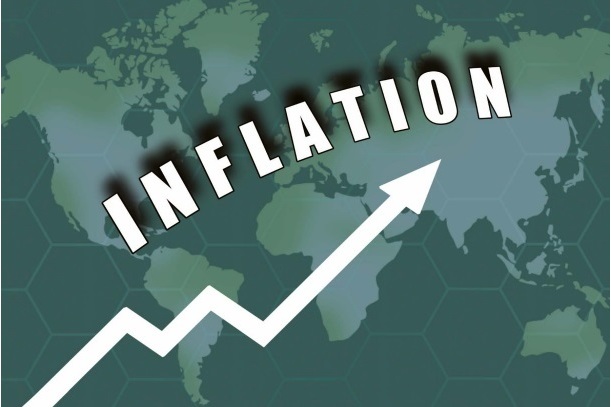Latest News
Nigeria’s inflation hits 22.79 per cent

News Highlight
The food inflation rate in June 2023 was 25.25% on a year-on-year basis; this was 4.65 percentage points higher relative to the rate recorded in June 2022 (20.60%).
Nigeria’s headline inflation rate rose to 22.79% in June 2023. The figure represents a 0.38% month-on-month increase compared to the headline inflation rate of 22.41% in May 2023.
On a year-on-year basis, the headline inflation rate was 4.19 percentage points higher compared to the rate recorded in June 2022, which was 18.60%.
Until the June 2023 data, the inflation rates had been on a five-month rise. However, a new momentum for inflation may have been caused by the removal of subsidy on petrol and policy measures to unify the naira exchange rates under the administration of President Bola Ahmed Tinubu, who took the oath of office on 29 May 2023. Since then, there has been an approximately 150% increase in the prices of petrol – which Nigerians heavily rely on to generate electricity for their homes and offices and power motor vehicles for transportation – and the value of the naira has fallen by over 70% against the US dollar.
According to data by the National Bureau of Statistics (NBS), the general price level in Nigeria increased by 2.13% in June 2023 relative to prices a month earlier. The figure shows that prices rose higher last month than a month earlier when a 1.94% increase in the general price level was recorded.
On a year-on-year basis, the urban inflation rate in June 2023 was 24.33%, this was 5.23 percentage points higher compared to the 19.09% recorded in June 2022. On a month-on-month basis, the urban inflation rate was 2.31% in June 2023, which was 0.21% percentage point higher compared to May 2023 (2.09%).
The rural inflation rate in June 2023 was 21.37% on a year-on-year basis; this was 3.25 percentage points higher compared to the 18.13% recorded in June 2022. On a month-on-month basis, the rural inflation rate in June 2023 was 1.96%, up by 0.16 percentage point compared to May 2023 (1.80%).
The food inflation rate in June 2023 was 25.25% on a year-on-year basis; this was 4.65 percentage points higher relative to the rate recorded in June 2022 (20.60%). According to data by the NBS, the rise in food inflation on a year-on-year basis was caused by increases in prices of oil and fat, bread and cereals, fish, potatoes, yam and other tubers, fruits, meat, vegetable, milk, cheese, and eggs.
On a month-on-month basis, the food inflation rate in June 2023 was 2.40%. This was 0.21% percentage point higher compared to the rate recorded in May 2023 (2.19%).
The “All items less farm produce” or core inflation, which excludes the prices of volatile agricultural produce stood at 20.27% in June 2023 on a year-on-year basis; up by 4.53 percentage points when compared to the 15.75% recorded in June 2022. The highest increases were recorded in the prices of passenger transport by air, gas, vehicles spare parts, liquid fuel, fuels and lubricants for personal transport equipment, medical services, passenger transport by road, etc.
On a month-on-month basis, the core inflation rate was 1.74% in June 2023. It stood at 1.81% in May 2023, down by 0.07%.
The NBS report released on Monday for June 2023 shows all items inflation rate on a year-on-year basis was highest in Lagos (25.75%), Ondo (25.40%), Kogi (25.23%), while Borno (20.44%), Zamfara (20.93%) and Ekiti (21.06%) recorded the slowest rise in headline inflation on a year-on-year basis. On a month-on-month basis, however, June 2023 recorded the highest increases in Ogun (3.21%), Plateau (3.05%), Jigawa (3.00%), while Zamfara (1.40%), Delta (1.42%) and Rivers (1.54%) recorded the slowest rise on month-on-month inflation.
Still at the state level, in June 2023, food inflation on a year-on-year basis was highest in Kwara (30.80%), Lagos (30.37%), and Kogi (29.71%), while Zamfara (21.38%), Sokoto (21.60%) and Borno (21.75%) recorded the slowest rise in food inflation on a year-on-year basis. On a month-on-month basis, however, June 2023 food inflation was highest in Kwara (3.82%), Abuja (3.64%), and Ogun (3.56%), while Rivers (0.75%), Zamfara (1.33%), and Adamawa (1.47%) recorded the slowest rise in food inflation on a month-on-month basis.
Related News
Latest Blogs
- What Ould Tah’s tenure at BADEA reveals about his AfDB candidacy
- Implementation strategy crucial for the success of 12-4 education policy
- A senator’s suspension threatens the right of representation
- Tinubu’s promising revolution in infrastructure development
- Has Tinubu’s economic reform started working?
Most Popular News
- Artificial intelligence can help to reduce youth unemployment in Africa – ...
- Nigeria records $6.83 billion balance of payments surplus in 2024
- Tariffs stir inflation fears in US but offer targeted industry gains ...
- Tinubu appoints new Board Chair, Group CEO for NNPC Limited
- Soaring civil unrest worries companies and insurers, says Allianz
- CBN net reserve hits $23.1 billion, the highest in three years









